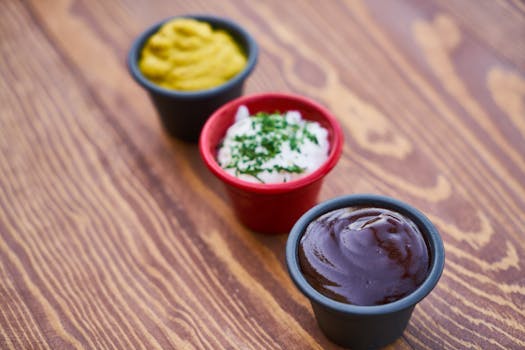Many cat owners are curious about sharing their favorite foods with their feline friends, and ketchup often finds its way onto that list. Whether your cat has snuck a lick off your plate or you’re wondering if it’s safe to offer them a taste, understanding how ketchup affects cats is essential. Let’s dive into the details and uncover whether ketchup is safe or risky for your furry companion.
🍅 What Is Ketchup Made Of?
Ketchup is a popular condiment made primarily of tomatoes, but there’s more to it than meets the eye. The typical ingredients in ketchup include:
- Tomato concentrate or puree
- Sugar or high-fructose corn syrup
- Vinegar
- Sodium (salt)
- Spices and flavorings (e.g., onion powder, garlic powder)
- Preservatives
While tomatoes themselves are not toxic to cats when ripe, the additional ingredients in ketchup can pose potential risks to your pet’s health. Let’s break this down further to see what makes ketchup problematic for cats.
🧂 Why Ketchup Can Be Risky for Cats
Although a small amount of ketchup may not cause immediate harm, it’s not a safe treat for your cat. Here’s why:
- High sodium content: Ketchup contains a significant amount of salt, which can lead to sodium poisoning in cats if consumed in large quantities.
- Onion and garlic powder: These common flavorings are toxic to cats and can cause damage to their red blood cells, potentially leading to anemia.
- Sugar and sweeteners: The sugar or high-fructose corn syrup in ketchup is unnecessary and unhealthy for cats, contributing to obesity and other health problems over time.
- Acidity from vinegar: The acidic nature of vinegar may upset your cat’s stomach, causing vomiting or diarrhea.
Because of these ingredients, ketchup is not a feline-friendly food. Even if your cat seems curious about it, it’s best to avoid letting them have any.
🐾 Signs Your Cat May Have Eaten Ketchup
If your cat accidentally licks or eats ketchup, you might notice some unusual behaviors or symptoms. Keep an eye out for the following signs:
- Vomiting or diarrhea
- Lethargy or weakness
- Increased thirst or urination
- Drooling or pawing at their mouth
- Pale gums (a possible sign of anemia)
If your cat shows any of these symptoms after consuming ketchup, contact your veterinarian immediately for advice. Acting quickly can help prevent more serious complications.
🐱 Why Cats Are Attracted to Ketchup
Even though ketchup isn’t good for cats, some felines might find its smell or texture intriguing. The tangy aroma of vinegar and spices can pique their curiosity, while the sweetness of ketchup might appeal to their taste buds. However, this doesn’t mean it’s suitable for them to eat.
If you notice your cat showing interest in ketchup, it’s a good idea to redirect their attention with a safe, cat-friendly treat instead.
✅ Safe Alternatives to Ketchup for Cats
If you want to treat your cat to something special, there are plenty of healthy options that won’t harm their health. Consider offering your cat these safe alternatives:
- Cooked, plain chicken or turkey (no seasoning)
- Small pieces of cooked fish like salmon or tuna
- Commercial cat treats made with natural ingredients
- Catnip or cat grass for a fun, healthy snack
These options are both nutritious and enjoyable for your cat, ensuring they stay happy and healthy.
🩺 What to Do If Your Cat Eats Ketchup
If your cat accidentally consumes ketchup, don’t panic. Here’s what you should do:
- Check the amount: If it was a tiny lick, it’s unlikely to cause harm. However, larger quantities may require immediate attention.
- Monitor for symptoms: Keep an eye out for signs of distress, such as vomiting, diarrhea, or lethargy.
- Contact your vet: If you’re unsure or notice any concerning symptoms, call your veterinarian for advice. They may recommend bringing your cat in for an examination.
In most cases, a small amount of ketchup won’t be fatal, but it’s always better to err on the side of caution when it comes to your pet’s health.
FAQs
Q: Can cats eat tomato-based products?
A: Cats can eat ripe tomatoes in small amounts, but tomato-based products like ketchup are not safe due to added ingredients like sugar, salt, and spices.
Q: What happens if my cat eats garlic or onion powder in ketchup?
A: Garlic and onion powder are toxic to cats and can damage their red blood cells, potentially leading to anemia. Contact your vet immediately if your cat consumes ketchup containing these ingredients.
Q: Are there any condiments that are safe for cats?
A: Most condiments are not suitable for cats due to their high salt, sugar, and spice content. Stick to plain, unseasoned foods as treats for your cat.
Q: How can I keep my cat from eating ketchup?
A: Keep ketchup bottles and dishes out of your cat’s reach, and avoid leaving plates of food unattended. Offering safe, cat-friendly treats can also help redirect their curiosity.
References
Book a $49 online vet consultation at https://www.dialavet.com for fast, expert advice.








